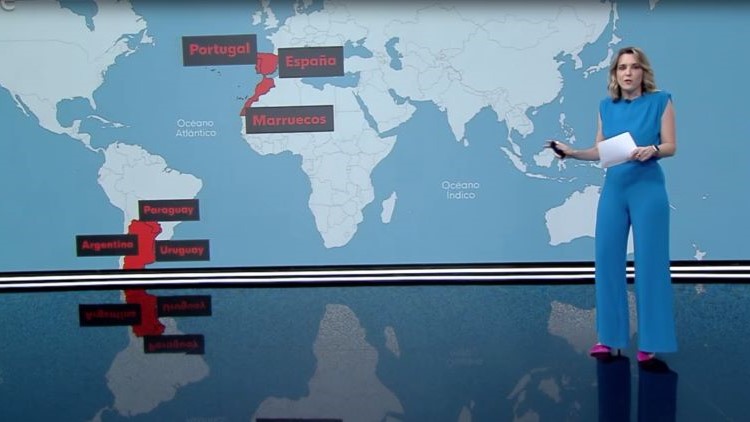Eduardo González
Spain is “obliged” to have “a proactive position from the beginning to properly position itself in the new European puzzle” that arises with the future “super enlargement” of the EU, not only because it will affect its relative weight in the Union and “ many central European policies for Spain”, but because the incorporation of the new eastern members could “shift the focus of political attention and resources towards the East and the Balkans, to the detriment of strategic areas for Spain such as Latin America, the Mediterranean and the Sahel” .
These are some of the main conclusions of the report The super-enlargement of the European Union to the East and Western Balkans, prepared by the Alternativas Foundation under the coordination of Vicente Palacio, director of Foreign Policy of this think tank, and which was made public this last Thursday.
According to the document, “the geopolitical urgency created in Europe as a result of the Russian invasion and the war in Ukraine” has placed the project of a “super enlargement” to the Western Balkans (Albania, Bosnia and Herzegovina, Kosovo, North Macedonia, Montenegro and Serbia) and to the East (Ukraine, Moldova and Georgia) at the center of the European political agenda. The recent informal European Council Summit, held in Granada on October 6 under the Spanish Presidency of the Council of the EU, showed its consensus in favor of an enlargement, which “could transform the EU in a fundamental way”, since the the incorporation of these nine countries will not only change the “cognitive and political map about the limits of Europe, but also the institutions, functioning and identity of the Union.”
In this context, according to the Alternativas study, “Spain is obliged to have a proactive position from the beginning to properly position itself in the new European puzzle”, since “a super enlargement would affect not only our relative weight in the EU or the funds we receive from Brussels, but in a transversal way to many other European policies, some of them central for Spain, such as the Common Agricultural Policy (CAP), migration policy, the fight against organized crime or even a fundamental pillar such as “It is respect for the rule of law.”
For this reason, as one of the authors of the report, Mercedes Guinea, explained during a meeting with the press, Spain must get out of the “very low political profile” that it has had in the EU in “recent years” and recover its “very active role” which he had “between the 1990s and early 2000s.” In these recents years, she lamented, Spain has focused on negotiations on issues of interest but has been “losing the strategic vision, which has recovered somewhat with the Spanish Presidency but which should continue.”
In any case, the report continues, “Spain must draw the lessons from previous enlargement processes, particularly those of 2004 and 2007 with the incorporation of ten new eastern members.” “It is necessary to remember that there will always be a risk of shifting the focus of political attention and resources towards the East and the Balkans, to the detriment of strategic areas for Spain such as Latin America, the Mediterranean and the Sahel,” she warns. For this reason, enlargement to the East and the Balkans “can and should be carried out as long as, in parallel, important adjustments are made” in these strategic geographical areas and “new instruments” of cooperation are supported. This process “will require a proactive attitude from Spain.” “It is essential that there be a solid agenda on Latin America,” said Mercedes Guinea.
The weight of Spain and the reforms
On the other hand, Alternativas warns that, with the incorporation of the nine States, “the relative weight of Spain, taking into account its population,” will go from 10.7% in the current EU of 27 States to 9.4 % in the future EU to 36. However, he specifies, the greatest imbalance for Spain will not come from demographic changes, since the nine countries are “extraordinarily diverse in terms of population” (among the 40 million inhabitants in Ukraine, the seven million in Serbia and the reduced population of the seven remaining States) and their combined demographic contribution will barely serve to compensate for the departure of the United Kingdom.
The real problem, it says, is the increase in the number of member states, which affects “both the composition of the institutions and the internal balances and voting rules.” Therefore, according to the study, “for Spain, the first condition for a super-enlargement can only be reform” because it is necessary to review the composition and functioning of the institutions to “allow an equitable distribution of political representation among the Member States and citizens and an agile and efficient functioning of the EU.”
In these circumstances, according to Alternativas, “Spain can and must promote these reforms” – which include changes in the Treaties and the European budget, the replacement of unanimity by majority in the Council, the reduction of the number of commissioners or a redistribution of seats in the European Parliament – “while safeguarding their interests and under a pro-federal approach that at the same time reinforces their presence in the hard core of the Union.”
Despite this, Alternativas recalls that, “at the moment, the debate is divided between those who defend the need to accelerate the enlargement agenda before addressing the reform and those who consider that an enlargement without reform will end in the failure of the Union”. Among the defenders of this second option are the European Parliament and numerous experts (including the Alternativas Foundation itself), but, among the first, not only the president of the European Commission, Ursula von der Leyen, but even the Spanish Presidency itself, which in its program already clearly differentiated, as if they were two different processes, the accession process of the candidate countries and the reform of decision-making procedures. In fact, the State Secretary for the EU, Pascual Navarro, admitted in July 2023, during a debate at the Alternativas Foundation, that the two issues did not have to be linked and that the enlargement could proceed without considering the review of the Treaties.







